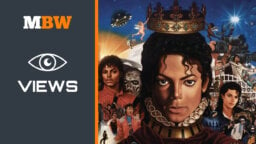The following MBW op/ed comes from Dublin-based Barry Scannell (pictured inset), a leading AI law expert with Ireland-based corporate law firm, William Fry LLP.

In my Op-Ed, I pointed out that if the courts decide that not enough human input goes into an AI-generated work, then that work cannot be protected by copyright (with notable exceptions such as UK and Irish law permitting copyright protection of computer-generated works, with the author being the person who made the “necessary arrangements” for the creation of the work), and then the work will fall into the public domain, meaning that creators would lose their IP protections.
Last week, in a significant blow to the IP rights of creators who use generative AI, the US Copyright Office (USCO) refused to grant a copyright registration to AI images in Kristina Kashtanova’s Zarya of the Dawn comic (the Work), which used Midjourney generative AI art.
Having read the decision, I have to say that personally, I don’t agree with the USCO’s rationale, but there is huge debate at the moment on whether AI works created by the likes of Midjourney have human authors.
Zarya Of The Dawn, and a landmark case
Firstly, let’s consider what is meant by “generative AI”. Generative AI is a branch of artificial intelligence that uses algorithms to create new content from data, such as images, text, or music. Google’s MusicLM can create AI generated musical compositions from text prompts. Apps like Midjourney and Dall-E2 can do the same for images.
Generative AI in the music industry has many potential benefits such as being able to help content creators generate original soundtracks for their videos, podcasts, and apps without needing musical skills or expensive equipment. It can empower artists to explore new musical possibilities, collaborate with other creators, and monetize their tracks on streaming platforms. The drawback of course is that there is strong potential that composers will find demand dips as people increasingly rely on AI-generated output.
In September 2022, Ms. Kashtanova was granted a copyright registration for the partially AI-generated graphic novel, Zarya of the Dawn, by the USCO.
However, at the end of October, Ms. Kashtanova was informed by the USCO that the registration may be cancelled. Apparently a reporter had seen social media posts by Ms. Kashtanova about her registration and the reporter queried this with the USCO. The reason for the USCO’s actions were that the images in the graphic novel were created using the text-to-image AI system Midjourney, and they said this was not properly disclosed.
Ms. Kashtanova explained that she was asked by the USCO to provide details of her process “to show that there was substantial human involvement in the process of creation of this graphic novel”. Under US law, only a human can be an author, and the USCO’s Copyright Compendium explicitly states this.
In its decision released last week, the USCO concluded that Ms. Kashtanova is the author of the Work’s text as well as the selection, coordination, and arrangement of the Work’s written and visual elements and that this is protected by copyright.
However, it said that the images in the Work that were generated by AI are not the product of human authorship.
They key issue: ‘it is not possible to predict what Midjourney will create ahead of time’
Ms. Kashtanova had argued that the Work’s registration should not be cancelled because (1) she authored every aspect of the work, with Midjourney serving merely as an assistive tool, and, (2) portions of the work are registrable because the text was authored by Ms. Kashtanova and the Work is a copyrightable compilation due to her creative selection, coordination, and arrangement of the text and images.
In its decision, the USCO referred to the US Supreme Court decision in Feist Publ’ns, Inc. v. Rural Tel. Serv. Co, which explained that the term “original” in the copyright context consists of two components: independent creation and sufficient creativity. Firstly, the work must have been independently created by the author. Secondly, the work must possess sufficient creativity. Only a “modicum of creativity” is necessary. It is also worth noting that the USCO’s Copyright Compendium explicitly states that only human authored works are registerable.
The USCO refused to grant copyright registrations for the AI-generated aspects of the Work, saying that the AI is not controlled by the user because “it is not possible to predict what Midjourney will create ahead of time.” They said that the AI generates images in an unpredictable way, and on that basis, that Midjourney users are not the “authors” for copyright purposes of the images the technology generates.
What this comes down to is whether you see the AI as a tool, or the creator.
Copyright doesn’t protect ideas, rather it only protects ideas which are “fixed in a tangible medium” (i.e. recorded on a tape, written on paper, saved on a hard drive, etc.). Is a text prompt just an idea that cannot be copyrighted? Or is the AI a tool which, like a paintbrush, fixes your idea into a tangible medium? There is also disagreement about where the creativity lies – with some arguing that the creativity is in the text prompt and others arguing that any creativity comes from the machine.
What the decision means, is that without a copyright registration, Ms. Kashtanova will potentially find it difficult to enforce any copyright in the AI-generated images in the US.
It is important to note that this was essentially an administrative decision, and the possibility of administrative appeal is open to individuals who are unhappy with USCO decisions, as is the possibility of legal action.
The implications for music
This decision potentially has major implications for US creative industries, from music to art to gaming, as it calls into question whether works which utilise (even in part) AI technology can be protected by copyright.
If creators use AI in their works, the individual AI elements of those works may not be protected. It also appears that for now at least, AI-generated works may not be protected by copyright, and could be public domain.
This means we are potentially on the precipice of a world flooded by AI-generated content. This content will be able to out-compete human-generated content, because unlike human-generated content – copyright licences won’t be payable for the AI content.
With AI-generated music, the sound recording right will remain intact, because the sound recording right doesn’t rely on the provenance of the sound being recorded. The question is – does making AI-generated works public domain encourage the promulgation of AI-generated sound recordings because the rights in the music doesn’t need to be secured?
The rate of technological progression in AI is simply staggering, and as it increasingly pervades every element of our lives, these issues will become increasingly pressing.Music Business Worldwide




